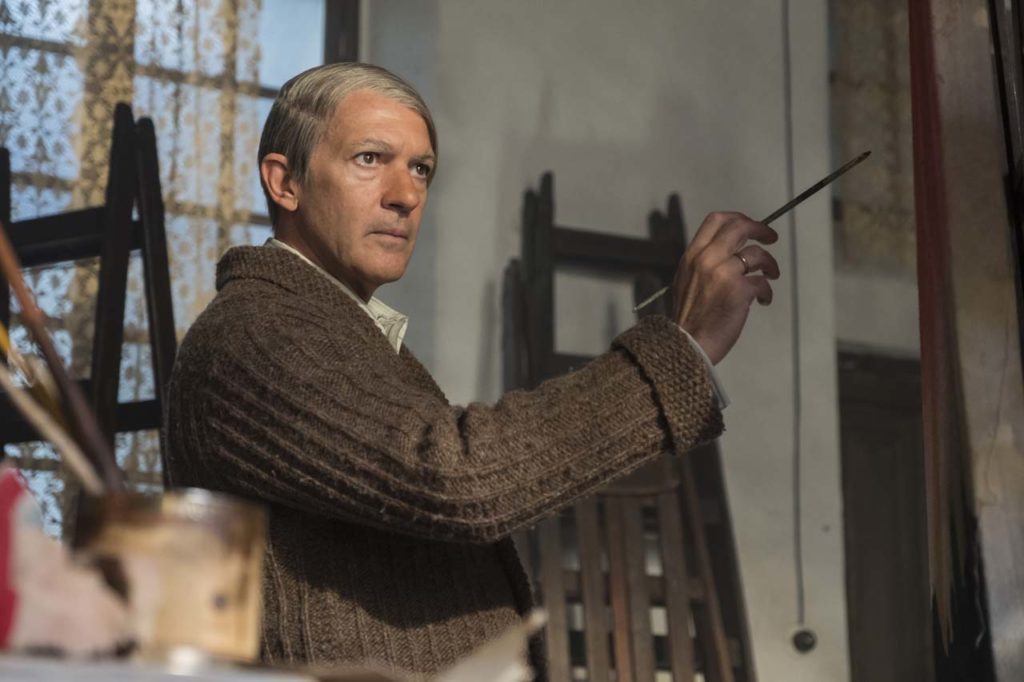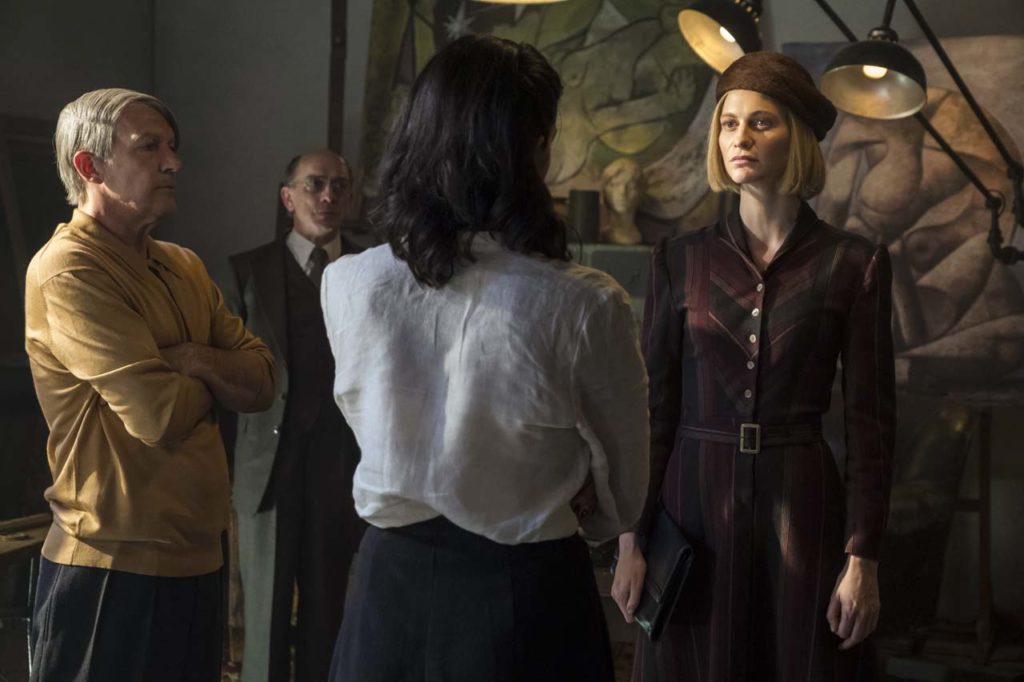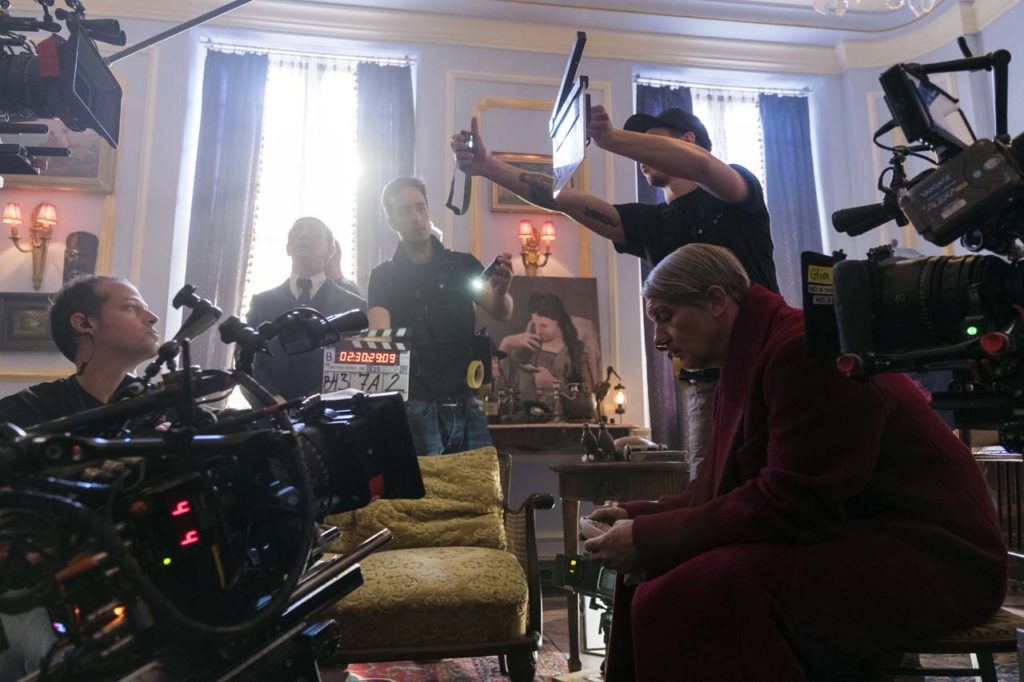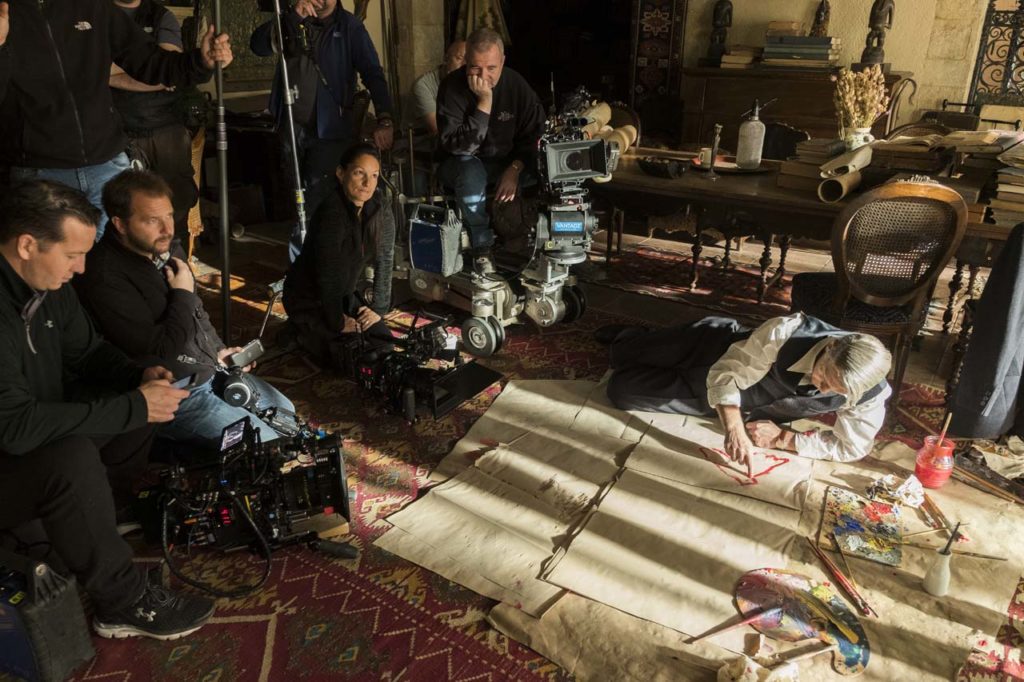ANTONIO BANDERAS DESCRIBES HIS AT ONCE WORSHIPFUL AND UNVARNISHED PORTRAYAL OF PABLO PICASSO IN A 10-EPISODE CABLE SERIES SET TO DEBUT IN APRIL
BY SUSAN HORNIK, PHOTOS COURTESY OF NATIONAL GEOGRAPHIC CHANNEL
The first season of National Geographic Channel’s scripted anthology series, Genius—biopic dramatizations of the lives of artists and other intellectual standouts—was the most watched production in the network’s history, and received 10 Emmy nominations, as well as generating a Golden Globe nomination in the category of Best Actor Miniseries or Television Film for Jeffrey Rush, who played Albert Einstein.
Season two of the series premieres on April 24 and stars Antonio Banderas as arguably the greatest visual artist of the 20th century, Pablo Picasso. And in contrast to NatGeo’s generally sanguine depiction of the father of the general theory of relativity, the creator of Les Demoiselles d’Avignon and Guernica is described in a more unvarnished manner, from his formative years as a frustrated womanizing prodigy, to his found voice, and then to fame, but with desperation never far. In a stunning coincidence, Banderas was actually born in Picasso’s hometown of Málaga in the south of Spain, and in a press tour for Genius, told us that in many ways, he felt he was truly born for the part.

“Picasso has been a very important figure in my life,” the actor explained at the TV Critics Press Tour. “When I was going to school a little kid holding the hand of my mother we would cross in front of his house…where he was born. I am talking about a time in Spain when we didn’t have many international heroes. Picasso trespassed that barrier at a time when we were pretty much isolated by the dictatorship of Francisco Franco [who ruled from 1939 to 1975]. I grew up with a projection of this huge artist who was capable of making people all around the world fall in love with his art.”
Banderas was offered to play Cubism’s most pivotal practitioner a couple of times in his life, but demurred before the NatGeo offer.
“This time, I felt it was the right time. I said no before, because there was a big sense of responsibility, playing this character,” the 57 year old explained. “I had to be careful for the reason that…if I didn’t portray him properly, I may not be able to go back to my hometown [laughs],” adding that he also trusted that NatGeo would do a capable job, not least by taking on Ron Howard and Brian Grazer as executive producers.
The series explores how Picasso’s relentless creative drive and passionate nature synergized, at times unpredictably, in his turbulent personal life, one that included two marriages, numerous extramarital affairs, and fathering four children by three women.
“This was a man who was born in the 19th century, but [traveled] to Paris at 19 years old in a space of unbelievable freedom, including sexual freedom, that he didn’t experience in his own country,” Banderas explained, adding that he found it interesting that both France and Spain have expressed kinship with the artist.

“Everyone wants to own a little bit of Picasso,” he said. “In Barcelona, the people think he’s from there. In Paris they say, ‘No! He is French, he’s from here!’ In Málaga, we still say, ‘No, no…Picasso was born here!’”
“His artistry was a total link to his personality,” the actor explained. “There was no separation between the artist and the person. He was not only a man who was very capable [at creating], but also put that at the service of the political and social [challenges] of his time [perhaps most notably the mural sized 1937 painting Guernica, which depicts the bombing of a Basque Country village by Fascist Italian and Nazi warplanes]. He had a long sight for the future, and introspection about himself. He didn’t stop being a painter when he went home from the studio. Everything was mixed together in the same pot. You cannot separate those two roles. You cannot get comfortable…ever. The artistic side of Picasso is totally linked to his personal life, and vice versa. So, I allowed myself to be a little bit creative. And I think my directors and my producers were giving themselves the same permission.”

As an example of both the Cubist master’s bold command and sense of entitlement, Banderas cited how Picasso took the Diego Velázquez 1656 Spanish Golden Age painting, Las Meninas which, among other distinctions creates an uneasy relationship between the viewer and the depicted figures, and which many critics argue foreshadowed surrealism and created his own version.
“There was something interesting that we learned. Many other artists of his own time, Juan Gris, for example, or [Georges] Braque, or even [Henri] Matisse…when Picasso came to their homes, they would hide the latest paintings they were working on. Because, if Picasso had the opportunity to look at them, [his thought was that] he could do them better. So, we are talking about an extraordinary, capable, skillful, complicated guy.”
Banderas was equally intrigued by Picasso’s multifaceted personal life.
“For me, he’s a mystery. And I am not trying to unplug the mystery. Actually, I love to be part of it, and probably at the end of the show, we are not going to have an explanation of why he did this or that…we are going to continue being in that mystery. That is the point of this extraordinary art…actually what makes the whole project, for me, unbelievably exciting. And so far, it has been one of the most extraordinary projects that I have ever done in my life.”

